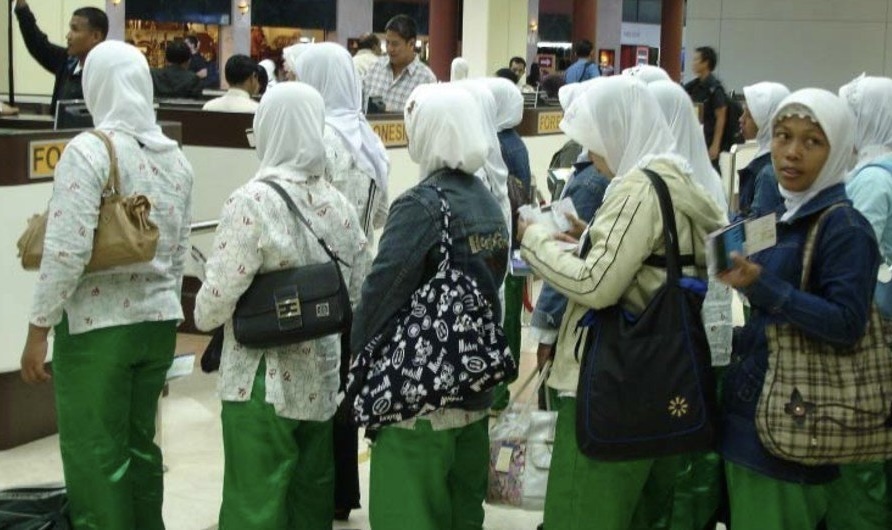Kuwait: Emir’s ‘purification’ drive strips citizenship from over 37,000 migrants
Women who acquired nationality through marriage particularly affected. Ordinary workers, entrepreneurs, and celebrities—including singers and actors—also targeted. Human rights activists and organisations express concern. In March, Sheikh Mishal Al-Ahmad Al-Sabah pledged to ‘cleanse Kuwait of impurities’ and return the nation to its ‘original people’.
Kuwait City (AsiaNews) – Kuwaiti authorities have revoked the citizenship of over 37,000 individuals—primarily migrant women who had struggled to obtain it—raising widespread concerns over human rights protections and legal uncertainty.
The data covers the period from August 2024 to the present and falls within an increasingly restrictive legal framework, fuelling criticism from activists and experts. Local sources report that the majority affected are “migrant women who had acquired citizenship through marriage”.
According to AFP, the mass revocation is part of a sweeping “reform initiative” launched by Emir Sheikh Mishal Al-Ahmad Al-Sabah following his accession to power in December 2023. S
ince then, the 84-year-old Gulf leader has dissolved parliament and suspended parts of the Constitution, citing a goal of what he termed a “national purification”—a move that has drawn sharp criticism from rights groups.
In a televised address in March, the Emir vowed to “cleanse Kuwait of impurities” and to restore the nation to its “original people”, seeking to restrict citizenship to individuals with documented ancestral ties to the country.
Kuwait is governed by a constitutional monarchy with a parliamentary system—the oldest of its kind in the Gulf. The first parliament was elected in 1963, two years after independence from the United Kingdom on 19 June 1961. It has held substantial powers, including the ability to pass or reject laws, question ministers, and file no-confidence motions against senior officials.
The Majlis al-Umma comprises 50 members elected every four years. It can also dismiss the Prime Minister or other ministers and confirm the appointments of the Crown Prince and the Emir, whose position is hereditary. However, upon forming a new government just over a year ago, the Emir suspended certain powers of the assembly and parts of the Constitution.
Kuwait has a population of just over 4.8 million, of whom approximately 1.53 million are citizens, while around 3.29 million are migrant workers who are not granted voting rights and rarely gain citizenship. Official figures show that at least 26,000 women have lost their nationality under the new policy, particularly those who had acquired it through marriage to Kuwaiti nationals.
Under the updated provisions, all citizenships granted to foreign spouses since 1987 are being annulled, leaving thousands at risk of statelessness and legal limbo. The policy affects both ordinary migrants and public figures alike—such as renowned pop singer Nawal El Kuwaitia and actor Dawood Hussein—demonstrating the far-reaching nature of the initiative.
Among the tens of thousands affected is Lama [a pseudonym], originally from Jordan, who discovered she was no longer Kuwaiti when she attempted to pay for a fitness session in Kuwait City: her credit card had been blocked and her bank account frozen.
The 50-year-old, who had lived in Kuwait for many years, later learned that her citizenship—granted through marriage—had been revoked. Sharing her story, she said she was “in shock: being a law-abiding citizen for 23 years and then waking up one day to find you're not anymore is simply unacceptable”.
A similar case is that of Amal, a businesswoman who had held Kuwaiti citizenship for nearly 20 years: “Overnight,” she remarked, “I became stateless.” The legislation affects all women naturalised since 1987.
According to the Ministry of Interior, 38,505 women were granted citizenship between 1993 and 2020. The decree also targets individuals with dual nationality—which Kuwaiti law prohibits—as well as those suspected of having used fraudulent documentation to obtain citizenship.
Analysts and experts argue that this strategy signals a more exclusionary definition of national identity under the new leadership—one that could deepen social divisions and tarnish Kuwait’s reputation as one of the more open Gulf states.
For now, the situation remains uncertain, with the coming months expected to reveal more about the country's direction regarding human rights and inclusivity. Many scholars believe the leadership aims to reduce the number of inhabitants to create a smaller, more controllable electorate.







.png)










